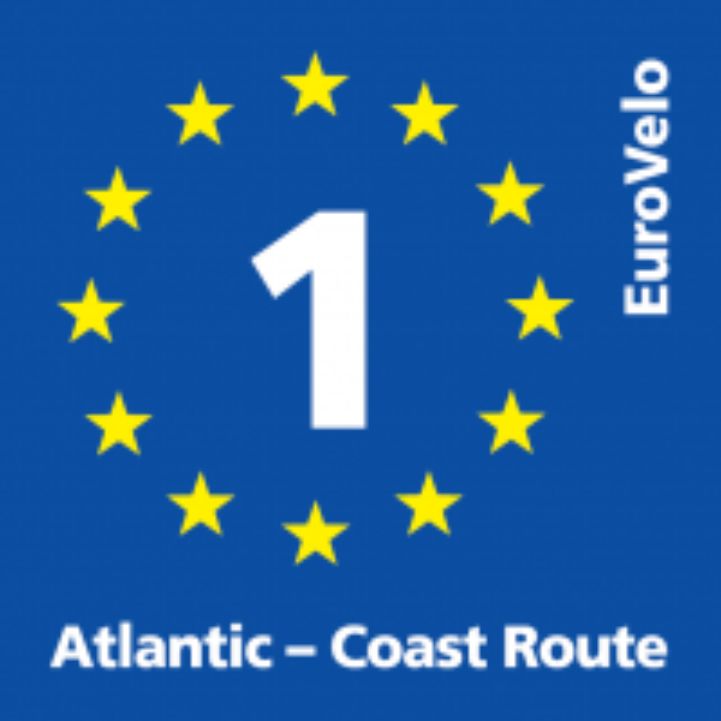AtlanticOnBike - EuroVelo 1 project extension
In this extension of the original AtlanticOnBike project, a partnership has been put together to cover the whole area of EuroVelo 1 - Atlantic Coast Route in 6 countries, but with a reduced number of partners to maximise the efficiency of the EU grant. The project extension covering the whole route aimed at developing integral tools and ensuring a common identity for the route from Norway to Portugal.
AtlanticOnBike responded to the common challenge of enhancing and exploiting the amazing natural and cultural assets along EuroVelo 1 - Atlantic Coast Route across the Atlantic Area, in order to make this route a well-known and attractive touristic destination in Europe. The original AltanticOnBike project developed a sustainable European touristic destination based on the transnational Atlantic Coast Route. Through a methodology developed in the frame of the original project, in 2020 it was estimated that there are around 10.5 million cyclists per year, with those cycle tourists on the route contributing at least 198 million euros of economic impact.
Following the end of the project, a EuroVelo 1 Partnership (formerly called LTMA, long-term management agreement) was signed to ensure the sustainability of some of the project outputs and to develop the route further on the transnational level. This call provided an opportunity to undertake additional activities to those included in the original project - and now the Partnership - and thereby further exploit the outputs and results, particularly following the impact of the pandemic on the tourism sector. EuroVelo 1 is well-placed to benefit from the increasing popularity of cycling tourism in Europe.
Based on 6 Work Packages, the major outputs and activities of the project extension were:
- Supporting the coordination of the route on the transnational and national levels in the medium to long term, particularly in those areas that were not covered by the original partnership.
- Developing attractive new promotional tools to market the route to key tourist markets following the touristic marketing strategy developed in the original project.
- Surveying those sections of the route not covered by the original project partnership and tracking improvements on the other sections to ensure up-to-date information is available to communicate to users and identify priorities for investments.
- Encouraging destinations to invest in measures to support cycling tourism by providing expert guidance on route development, particularly related to current trends and innovative measures.
- Performing pilot actions to help encourage further investments along the route.
- Organising events to disseminate the tools developed in the original project, and information about EuroVelo 1 generally, to public and private stakeholders on the transnational, national and regional levels.
- Improving the common methodology for evaluating the users of EuroVelo 1 and their economic impact and collecting updated data through an improved transnational platform for data (quantitative and qualitative) sharing.
The AtlanticOnBike extension project ensured the capitalisation of all the best practices and built on the training program for the partners established during the original project.
A new partnership was composed for this extension to ensure it is focused, easy to manage and quickly operational. ECF was one of 8 partners from 7 different countries:
- Statens vegvesen, Norway
- Sustrans, UK
- Department of Transport, Ireland
- La Vélodyssée, France
- Conseil départemental des Pyrénées-Atlantiques, France
- Conbici, Spain
- FPCUB, Portugal
For more information about EuroVelo 1 – Atlantic Coast Route, please visit www.EuroVelo1.com.


